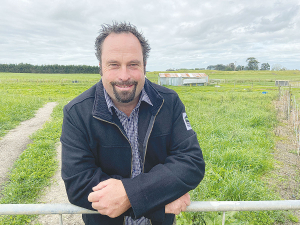Farmers want the Commerce Commission to investigate whether pursuit of net-zero strategies and targets by New Zealand banks breaches competition rules.
In an eight-page letter to the Commerce Commission yesterday, Federated Farmers is requesting an investigation into potential anti-competitive and cartel-like behaviour.
The letter signed by Federated Farmers banking spokesman Richard McIntyre names five major banks that dominate the agricultural lending market: BNZ, ANZ, ASB, Westpac, and Rabobank.
“The alignment of net-zero strategies and targets among these five banks raises serious concerns about potential cartel-like behaviour and/or conduct that that could significantly lessen competition in the agricultural lending sector,” he says.
“Of particular concern are the banks’ commitments under the Net-Zero Banking Alliance (NZBA).
“The NZBA’s overarching goal of transitioning financial institutions to net-zero emissions by 2050 has introduced stringent guidelines that encourage alignment among member banks. This alignment risks creating coordinated lending practices that disadvantage high-emission sectors such as agriculture, transport, and mining. The consequential impact will likely reduce competition for banking products in these sectors, resulting in higher borrowing costs and stricter lending terms.
“This letter formally requests that the Commission investigates whether the coordinated pursuit of net-zero strategies and targets by New Zealand banks, including NZBA-aligned practices, contravenes the Commerce Act. I provide evidence to support these concerns.’
The Net-Zero Banking Alliance is a global coalition of financial institutions committed to aligning their lending portfolios with the Paris Agreement’s 1.5°C global target pathway and net-zero greenhouse gas emissions by 2050. (Link 1) The NZBA guidelines require members to address Scope 1 (direct emissions), Scope 2 (indirect emissions from energy use), and Scope 3 (emissions from financed activities) across most financed emissions.
In New Zealand, each of the five banks that dominate the agricultural lending market are either directly members of the NZBA or are indirectly affiliated with the NZBA through their parent companies: together these five banks make up 97.3% of the agricultural lending market.
Federated Farmers point out that these banks reference their NZBA obligations (as well as other net-zero strategies and outcomes) in various sustainability reports and other collateral which demonstrates a clear commitment to the NZBA's principles and targets. Some of the banks have already stated their targets for reductions in financed agricultural emissions by 2030.
The letter outlines each bank’s connection to the alliance.
BNZ, which has 21.4% share of the ag lending market, has set a dairy emissions reduction target of 11% for financed biological emissions by 2030 (against a 2022 baseline).
ANZ has 24% share of the agricultural lending market. ANZ has not yet set specific targets for agricultural lending. ASB has 16.7% share of the agricultural lending market. ASB has also not yet set specific targets for agricultural lending.
Westpac Group’s has set a 10% target reduction in scope 1 land management financed emissions for New Zealand dairy by 2030 (from a 2021 baseline) and a 9% target reduction in scope 1 land management financed emissions for New Zealand beef and sheep by 2030 (from a 2021 baseline): Westpac has 14.1% share of the ag lending market.
Rabobank has set a target of a 12% reduction in financed emissions for New Zealand dairy by 2030 and has 21.1% share of the ag lending market.
“It is clear that all five dominant banks have adopted NZBA-aligned practices, and some have published explicit and comparable emissions reductions targets.
“In our view, the way the banks have collaborated through initiatives like the NZBA in pursuit of these strategies and targets raises significant concerns about coordinated anti-competitive conduct in the agricultural lending sector. I request that the Commission investigates the banks’ conduct to determine whether breaches of the Commerce Act may have occurred.”



















